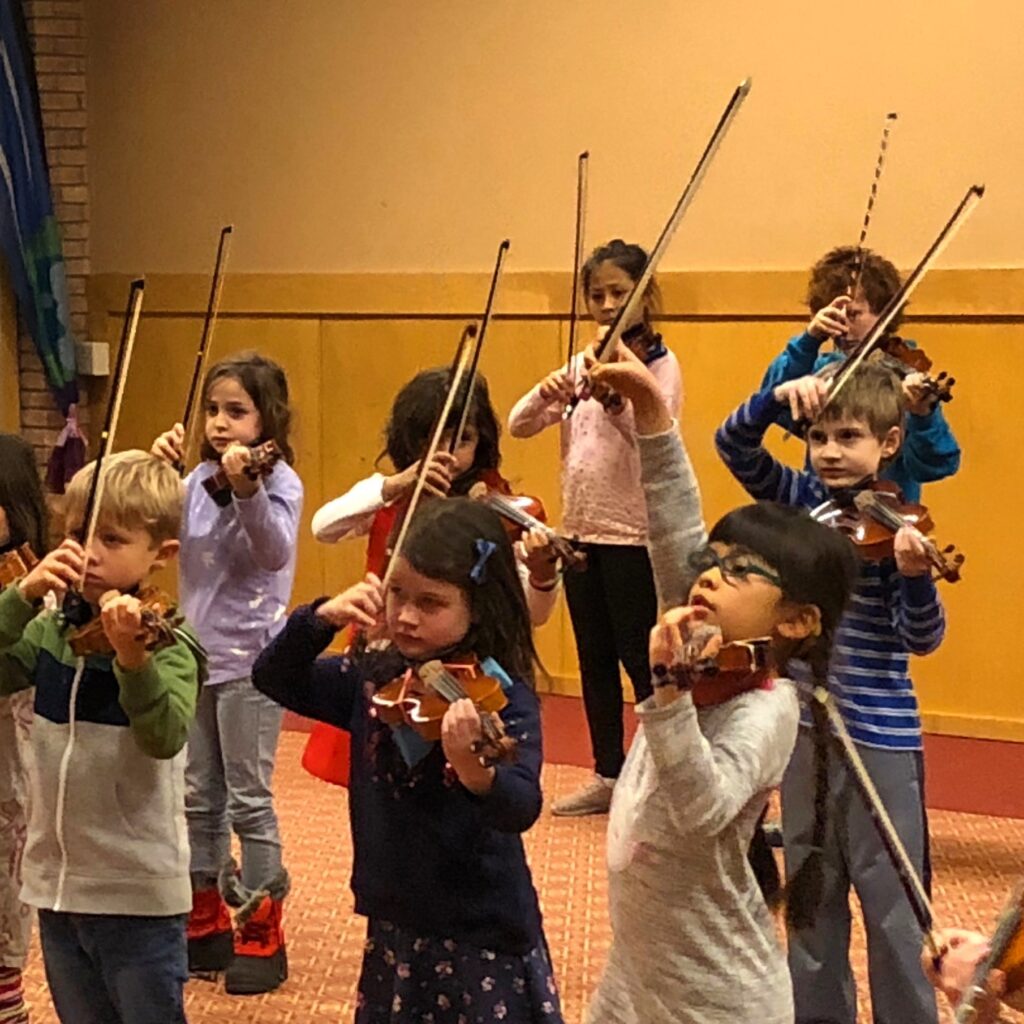Dear Parents,
Welcome to your November letter!
Friendly reminder, Tuesday, November 29 is an opportunity for you to engage in our monthly parent session during the play-in. The topic is “Tips and Tools for Practicing” which will be facilitated by Kathy Taylor. Please join the String Ensemble as they perform Rosin Eating Zombies at the play in, and then unite with your fellow Suzuki parents to share ideas for successful home practice times.
In this letter I would like to ponder ways of creating the environment for a positive practice to occur. I have included a few questions from Christine Goodner’s book: Music Practice Makeover. Excellent support and resources can be further found on her podcasts; Beyond the Music Lesson and Time To Practice, both found on Apple Play or Spotify.
Lets begin with exploring these self-examining questions.
-Do you see practice as a way to connect with your child?
-Do you encourage effort, and view mistakes as a way to learn?
-Do you celebrate how far you’ve come, while the understanding there is much to learn?
-Do you see yourself on the same team, working together to accomplish the weekly assignments?
-Are you involving the child in the process of practice or only giving directives?
I ask you to keep in the forefront that you are practicing the working relationship with one another alongside the learning of the instrument. Perhaps shifting your primary focus from result oriented to helping your child feel supported and successful during the practice session can open communication and connection.
“There is a world of difference between insisting on someone’s doing something and establishing an atmosphere in which that person can grow into wanting to do it“ -Fred Rogers
It is a big responsibility during busy days to set up the space for connection rather than battle over practice. This can feel difficult at times, but with empathy, we can create a productive and enjoyable practice environment.
What does a successful supporter do?
Be patient
Be encouraging
Listen without interrupting
Give them their space
Remind them that they are not alone
Don’t feel like you always need to give feedback or advice -being there can be enough
If your child is practicing from a place of anger, fear, or worry, then their relationship with their instrument can be rooted in those emotions.
How do we help create an environment that promotes a motivating cycle for the long term and help move a practice session from resistance to engagement?
Identify what in the environment is causing your child’s frustration.
Understanding what your child needs is not necessarily what you want them to need.
Avoid getting into the cycle of asking over and over ( broken record syndrome ) by getting to the point with clear statements and support.
Supportive phrases and pauses can help improve listening. Body language that puts out negative vibes creates difficulty in expecting a positive interaction.
The Suzuki method is based on cultivating a deep love and care for the practice process of the child.
Education for Happiness (EFH)/ www.educationforhappiness.org is a supportive warm-hearted online music education space that evolved from Phoenix Fest. Its founder Gabe Bolkosky is a Suzuki teacher in Ann Arbor Michigan. EFH also includes rollinpractice.com, discovering the practice wheel and offers virtual EFH Suzuki institute classes. Follow Gabe on IG @gbolkosky or his Facebook page, Education for Happiness, where he has lots of thoughtful musings and support for the Suzuki parent.
I hope that some of these ideas and questions offer you support as you continue to practice with your child. SSM and MCE strongly believe in parent education and assisting you in your families’ musical journey with us.
With a twinkling spirit ,
Diana



